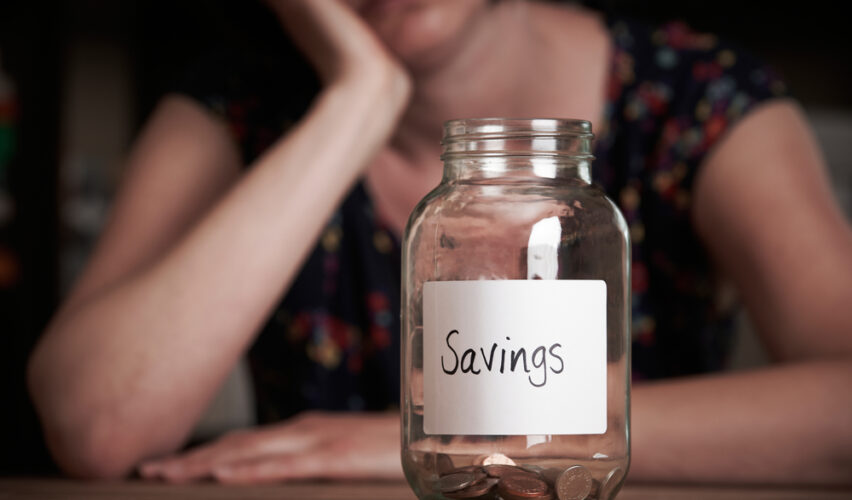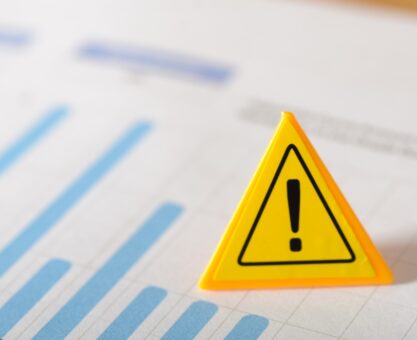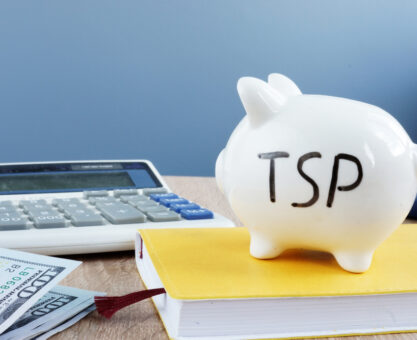From home loans and car loans to credit cards, carrying debt into retirement can be scary. That’s why paying it off as soon as possible is common retirement-planning advice. However, if you’ve been thinking that the best way to enter retirement debt-free is to tap into your TSP, take a step back and consider the consequences.
You’ll Owe Taxes When You Withdraw From Your Traditional TSP
If you take a large distribution from your traditional, tax-deferred TSP to pay off debt, the Internal Revenue Service will consider the withdrawn funds as taxable income for the year in which you make the withdrawal.
In fact, the TSP will automatically deduct 20% from your withdrawal for Uncle Sam. That’s right – under law, the TSP is required to withhold a 20% tax estimate from all traditional TSP withdrawals and send it to the IRS. Think about it — if you need x-amount of money to pay off credit cards, you’ll have to withdraw 20% more than what you need to cover the taxes. If you’re younger than 59-1/2, you’ll also have to pay a 10% Early Withdrawal Penalty.
Of course, if you withdraw funds from your Roth TSP balance you won’t owe taxes because you made contributions with your post-tax earnings. But you have to consider what you may lose in long-term asset growth.
“Even if you’re thinking of tapping your TSP to pay off your mortgage, if your TSP investments are earning more than your mortgage interest rate, it doesn’t make sense.”
Your TSP Withdrawals Diminish Growth Potential For Retirement
If comes down to simple math — if you withdraw 10-thousand dollars to pay off high-interest credit cards, your TSP growth potential is diminished, forever. Even if you’re thinking of tapping your TSP to pay off your mortgage, if your TSP investments are earning more than your mortgage interest rate, it doesn’t make sense. For example, if your home loan interest rate is 3% and you’re currently earning more than 3% on your TSP portfolio, it’s better to keep your mortgage and let your TSP grow.
Take A Hard Look At Your Spending Habits
Let’s face it – if you’re running up credit cards to the point where you’re thinking of tapping your nest egg to clear the debt, you need to look at your spending habits. Unless you make changes to how you manage your spending, there’s a good chance you’ll run up credit card debt again. Then what? Will you tap your TSP a second time?
Consider working with an FRC® trained advisor who understands your federal benefits. Together, you can develop a solid strategy for paying down your debt without tapping into your TSP nest egg.














